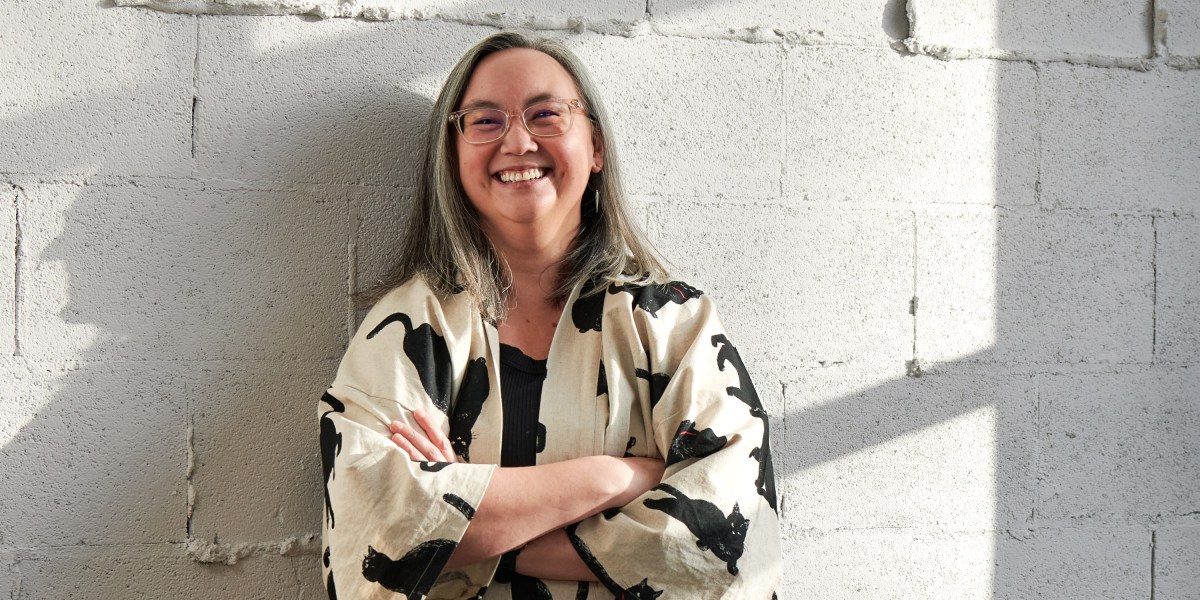
What Deckelmann means by “sustainability” is a pressing concern in the open-source space more broadly. When complex services or entire platforms like Wikipedia depend on the time and labor of volunteers, contributors may not get the support they need to keep going—and keep those projects afloat. Building sustainable pathways for the people who make the internet has been Deckelmann’s personal passion for years. In addition to working as an engineering and product leader at places like Intel and Mozilla and contributing to open-source projects herself, she has founded, run, and advised multiple organizations and conferences that support open-source communities and open doors for contributors from underrepresented groups. “She has always put the community first, even when the community is full of jerks making life unnecessarily hard,” says Valerie Aurora, who cofounded the Ada Initiative—a former nonprofit supporting women in open-source technology that had brought Deckelmann into its board of directors and advisory board.
Addressing both a community’s needs and an organization’s priorities can be a challenging balancing act—one that is at the core of open-source philosophy. At the Wikimedia Foundation, everything from the product’s long-term direction to details on its very first redesign in decades is open for public feedback from Wikipedia’s enormous and vocal community.
Today Deckelmann sees a newer sustainability problem in AI development: the predominant method for training models is to pull content from sites like Wikipedia, often generated by open-source creators without compensation or even, sometimes, awareness of how their work will be used. “If people stop being motivated to [contribute content online],” she warns, “either because they think that these models are not giving anything back or because they’re creating a lot of value for a very small number of people—then that’s not sustainable.” At Wikipedia, Deckelmann’s internal AI strategy revolves around supporting contributors with the technology rather than short-circuiting them. The machine-learning and product teams are working on launching new features that, for example, automate summaries of verbose debates on a wiki’s “Talk” pages (where back-and-forth discussions can go back as far as 20 years) or suggest related links when editors are updating pages. “We’re looking at new ways that we can save volunteers lots of time by summarizing text, detecting vandalism, or responding to different kinds of threats,” she says.
But the product and engineering teams are also preparing for a potential future where Wikipedia may need to meet its readers elsewhere online, given current trends. While Wikipedia’s traffic didn’t shift significantly during ChatGPT’s meteoric rise, the site has seen a general decline in visitors over the last decade as a result of Google’s ongoing search updates and generational changes in online behavior. In July 2023, as part of a project to explore how the Wikimedia Foundation could offer its knowledge base as a service to other platforms, Deckelmann’s team launched an AI experiment: a plug-in for ChatGPT’s platform that allows the chatbot to use and summarize Wikipedia’s most up-to-date information to answer a user’s query. The results of that experiment are still being analyzed, but Deckelmann says it’s far from clear how and even if users may want to interact with Wikipedia off the platform. Meanwhile, in February she convened leaders from open-source technology, research, academia, and industry to discuss ways to collaborate and coordinate on addressing the big, thorny questions raised by AI. It’s the first of multiple meetings that Deckelmann hopes will push forward the conversation around sustainability.
Deckelmann’s product approach is careful and considered—and that’s by design. In contrast to so much of the tech industry’s mad dash to capitalize on the AI hype, her goal is to bring Wikipedia forward to meet the moment, while supporting the complex human ecosystem that makes it special. It’s a particularly humble mission, but one that follows from her career-long dedication to supporting healthy and sustainable communities online. “Wikipedia is an incredible thing, and you might look at it and think, ‘Oh, man, I want to leave my mark on it.’ But I don’t,” she says. “I want to help [Wikipedia] out just enough that it’s able to keep going for a really long time.” She has faith that the people of the internet can take it from there.
Rebecca Ackermann is a writer, designer, and artist based in San Francisco.
